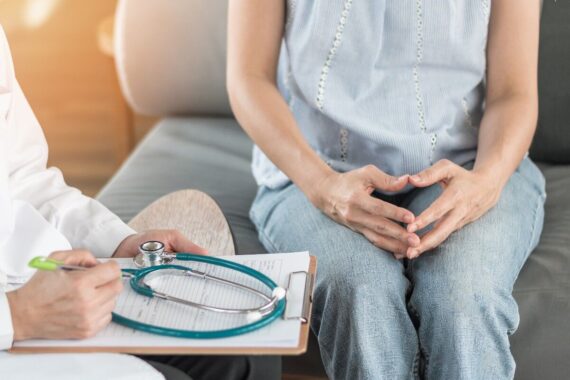Government launches ‘landmark’ women’s health survey

Women in England are being urged to have their say in a ‘landmark’ survey on their experiences of reproductive health.
Periods, contraception, fertility, pregnancy and the menopause, are among the issues that will form part of the survey.
It forms part of the Government’s key commitment in the Women’s Health Strategy, with its aim to better women’s reproductive health experiences over time.
The information will help to shape the government’s current and future decision-making around health policy in a bid to combat the disparity around women’s health.
It is hoped the combination of the new strategy and survey will help have an impact.
Maria Caulfield, minister for Women’s Health Strategy, said: ‘Women and girls deserve the best healthcare at every stage of their lives, but we simply can’t deliver that without listening to their lived experiences and concerns.
‘Women should always have a say in their own healthcare, whether that’s in managing pregnancy and fertility or dealing with the challenges of the menopause in the workplace.
‘I would encourage every woman to complete the survey on reproductive health as soon as they’re able and ensure their voice is heard.’
Women aged between 16-55 have been asked to take part in the survey, which gets underway today (7 September) and is available to those living in England.
It is being carried out by the London School of Hygiene & Tropical Medicine and is funded by the Department of Health and Social Care.
Since the Women’s Health Strategy a year ago, more than 300,000 more women have had cheaper hormone replacement therapy and new women’s health hubs are also being rolled out nationwide in every integrated care board.
It has also led to a dedicated women’s health area being added to the NHS website.
Professor Dame Lesley Regan, Women’s Health Ambassador, said: ‘We need to make healthcare work for women and girls – and for it to fit around their lives. There’s no point bolstering services if they can’t be accessed, or the support available doesn’t work for them and meet their needs.
‘That’s why we’re asking women and girls to share their experience, whether it’s about periods, menopause or endometriosis. We need your voice to shape a new system of healthcare that gives women what they need.’
The roll out of a new artificial intelligence tool to identify early risks in maternity units has already come into effect and £25 million is being distributed across England so every area can create a women’s health hub.
Women can also access a new IVF tool on gov.uk to uncover information about NHS-funded IVF treatments and a new network of women’s health champions led by the Women’s Health Ambassador for England, Professor Dame Lesley Regan, has also been put into place.
Dr Rebecca French, associate professor of Sexual and Reproductive Health Research at the London School of Hygiene & Tropical Medicine, added: ‘We know that poor reproductive health not only has a negative effect on health in general but can also impact women’s mental health, relationships and finances. Further research is needed to better understand inequalities across England so that women and people described as female at birth are able to make the choices they need for their own reproductive health and wellbeing.
‘The Women’s Reproductive Health Survey provides an opportunity to better understand what support is needed and how these issues can best be addressed.’
In July, the Government announced that each area in England will get at least one new hub specialising in women’s health, with each ICB receiving £595,000 to set them up.
Earlier this year, the Government rejected a recommendation to introduce mandatory menopause training for GPs, saying ‘it is not necessary.’
Pulse October survey
Take our July 2025 survey to potentially win £1.000 worth of tokens

Visit Pulse Reference for details on 140 symptoms, including easily searchable symptoms and categories, offering you a free platform to check symptoms and receive potential diagnoses during consultations.
Related Articles
READERS' COMMENTS [5]
Please note, only GPs are permitted to add comments to articles











If successive Governments are not willing to do what it takes to staff the service adequately so that women’s needs are met (or anyone’s needs, for that matter) what is the point of doing the survey?
Mismanagement of Women’s health services by NHS England and the Government should be one of the findings and wasting money on surveys intended to distract from the real practical underlying issues whilst simultaneously placing women at risk by lack of service provision and staff due to government and NHSE managers incompetence should be one of the other findings.
Meanwhile, men have a 4 year shorter life expectancy than women; men are more likely to develop cancer and have a poorer outcome than women, and are more likely to develop cardiovascular disease and do so at a younger age. Women use more NHS appointments than men, which is only partially explicable by reproductive health consultations.
I still run ‘Well Woman clinics’————-I’m not sure how you’d describe the patients who turn up
It is both ageist and sexist and the pointless survey is a smoke screen to actually offering a service.